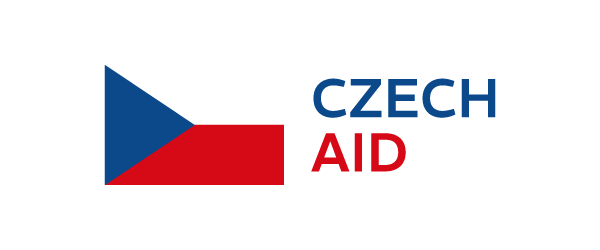Through the Czech-UNDP Partnership for SDGs, Czech expertise is helping Cambodian farmers turn agricultural waste into sustainable opportunities. The project V-BIOCHAR– Vermicompost and Biochar Integration for Climate-Smart Farming is a prime example of how innovation, science, and community cooperation can build more resilient livelihoods in rural Cambodia.
The project is implemented by the United Nations Development Programme (UNDP) and financially supported by the Ministry of Foreign Affairs of the Czech Republic through the Czech Challenge Fund. It is carried out by ADRA Cambodia and ADRA Czech Republic, with scientific guidance from the BioResources & Technology (BRT) Division of the Czech University of Life Sciences in Prague (CZU).
Soil Health for a Sustainable Future
Cambodia’s agriculture sector faces severe soil degradation and growing dependence on imported fertilizers. In 2021 alone, the country imported more than 1.4 million tons of chemical fertilizers, while millions of tons of crop residues- rice husks, corn cobs, and coconut shells- remained underused or burned.
The V-BIOCHAR project turns this challenge into opportunity. Through pyrolysis, a process that converts biomass into biochar by heating it without oxygen, farmers can produce a charcoal-like material that enriches soil, retains nutrients, and captures carbon. When combined with vermicompost, a nutrient-rich compost created by earthworms, the result is a natural soil enhancer that improves yields and reduces farming costs.
“The goal of the project is enhance soil health, increase crop yields, and open new business opportunities for youth and women farmers,” says Assoc. prof. Dr. Hynek Roubík from BRT, Faculty of Tropical AgriSciences, CZU.
Training Local Innovators
At the turn of May and June 2025, two Czech experts- Jan Staš, PhD student and Project Manager, and Dr. Chama Theodore Ketuama, Postdoctoral Researcher- led an intensive five-day training in Pursat Province, Cambodia.
The training, organized in partnership with ADRA Cambodia, focused on low-cost and locally adaptable pyrolysis technologies. Farmers learned to build and operate small barrel-type kilns to produce biochar using agricultural residues.
This approach ensures that knowledge is not only transferred but also adapted by local farmers, laying the foundation for long-term sustainability.
Empowering Farmers and Entrepreneurs
Nineteen local leaders- including six women- were trained to become resource persons for their communities. These leaders now work with over 40 producer groups, spreading knowledge about biochar and vermicomposting techniques.
Twelve aspiring entrepreneurs, half of them women, received business development training focused on marketing, production, and financial management. Several have already developed plans for small-scale biochar enterprises.
Eight demonstration kilns have been established in two districts to serve as practical learning sites, comparing the performance and cost-effectiveness of different kiln designs.
Educating the Next Generation
V-BIOCHAR also extends to local schools. Over 70 students from Samroung Secondary, Tonle Oum Secondary, and Kandieng High School participated in compost and biochar competitions, learning firsthand how waste can become a valuable resource.
A Partnership for Impact
The project exemplifies the strength of the Czech-UNDP Partnership for SDGs in combining Czech scientific expertise with local implementation capacity.
- UNDP implements the project with financial support from the Czech Challenge Fund.
- ADRA Cambodia leads field operations and community engagement.
- ADRA Czech Republic ensures project management and coordination.
- CZU’s BRT Division provides scientific and technical know-how.
The Provincial Department of Agriculture, Forestry and Fisheries (PDAFF) in Pursat has endorsed the initiative for its contribution to Cambodia’s national goals for sustainable and climate-resilient agriculture.
Looking Ahead
With a total budget of USD 53,362, the project runs from March 2025 to March 2026, focusing on technology transfer, farmer training, and market development.
V-BIOCHAR is not only improving soil fertility and farmer incomes but also demonstrating how Czech innovation can support global climate action through practical, community-driven solutions.
Through the Challenge Fund and Expertise on Demand, the Czech-UNDP Partnership for SDGs brings innovative solutions from the Czech Republic’s private sector, NGOs, universities, state institutions, research centres and individuals to tackle specific developmental challenges in the priority countries. The implementation of projects and expertise is financially supported by the Ministry of Foreign Affairs of the Czech Republic.
